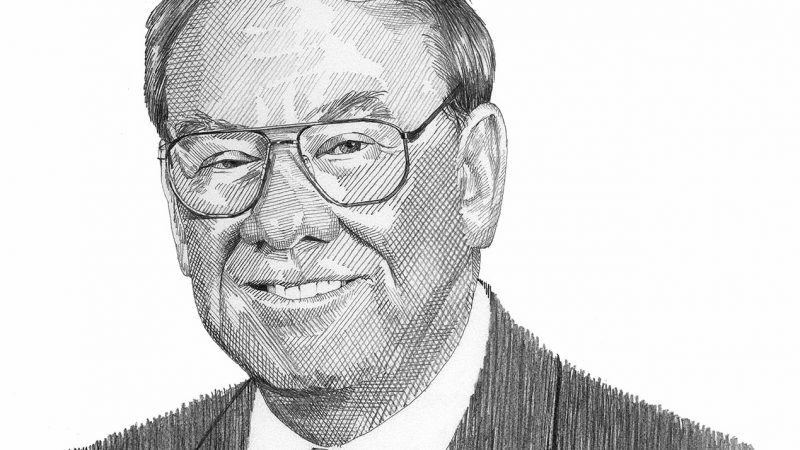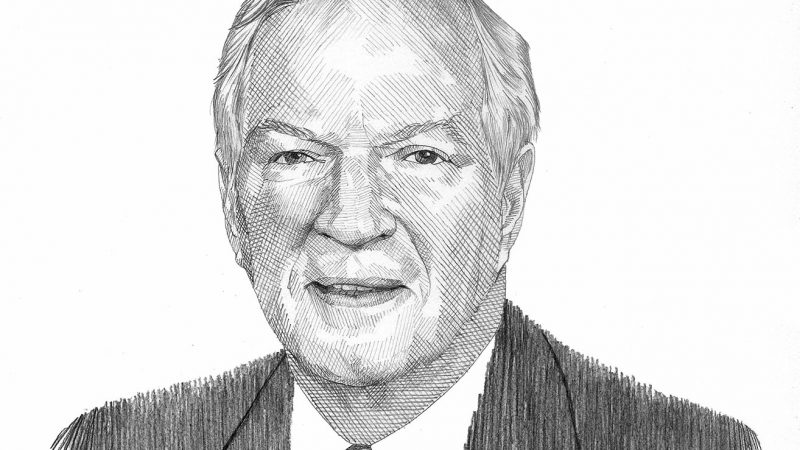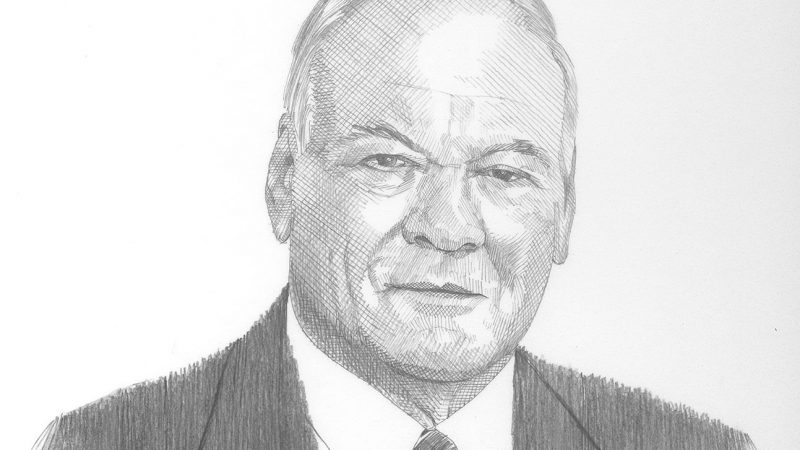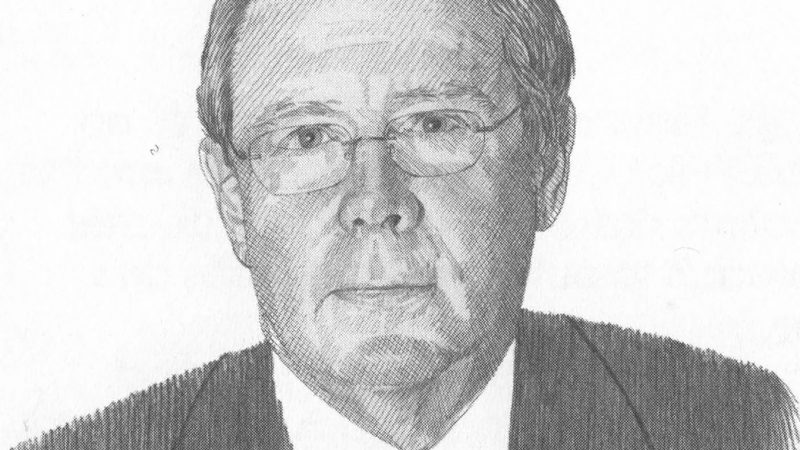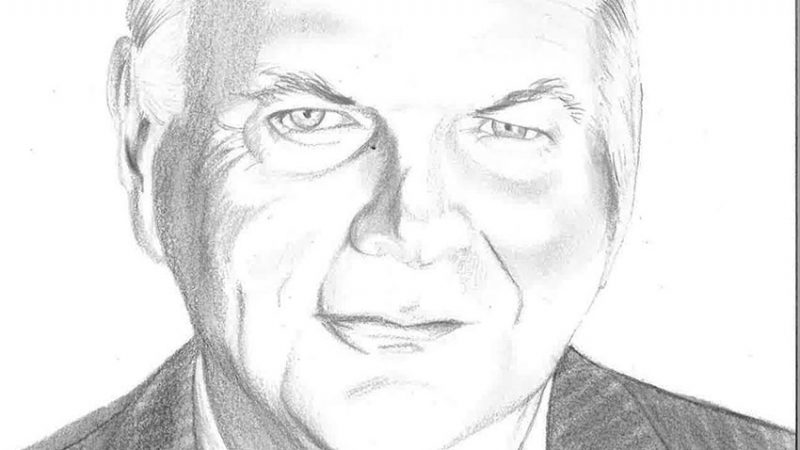Benjamin Russell
- October 4th, 2021
Benjamin Russell was born in Alexander City, Alabama on January 18, 1938. After graduation from The University of Alabama, he began his career at Russell Corporation, a textile and apparel company founded by his grandfather in 1902. In 1970, Russell was named president of Russell Lands, Inc., a private land and timber company owned by the Russell family.
Russell Lands owns more than 25,000 acres and over 200 miles of shoreline on beautiful Lake Martin, one of the oldest, largest, and cleanest man-made lakes in the South. Over the past 35 years, Russell Lands has developed several, upscale waterfront residential communities adjacent to Lake Martin. Starting in 1970 with just 15 employees whose primary concerns were lake cabin maintenance and timber management, Russell Lands has grown into a multi-faceted business with over 500 employees and multiple operating divisions in several Alabama counties. Recent developments at Lake Martin have attracted purchasers from as far away as California. The quality of Russell Lands’ developments is undoubtedly one reason for consistent Lake Martin property value increases over the past 35 years. Russell Lands handles sales of these properties through a subsidiary brokerage firm, Russell Lands Real Estate, Inc. In addition to its real estate development activities, Russell Lands leases more than 300 “Russell Cabins” on the shores of Lake Martin. Wonderful family memories for generations of Alabamians have been created in these cabins.
Russell Lands also owns Willow Point Golf and Country Club, one of the top golf courses in the State of Alabama. A golf course renovation completed in 2003 has resulted in an exceptional test of golf, as evidenced by the hosting of the 2008 Alabama State Seniors Championship and the 2008 Alabama State Amateur Championship.
Other Russell Lands business interests are as varied as those created by Ben’s grandfather near the turn of the 20thcentury. The Russell Marine division operates four sales and full-service marinas on Lake Martin. Russell Marine was recently recognized by Boating Industry Magazine as the number nine ranked boat dealer in the world. The Company also owns and operates nine building supply stores affiliated with Do-it Best Corporation. Do-it Best Corporation, a $4 billion cooperative with over 4,000 members, recognized Russell Lands and its 4th largest customer in 2007.
Identifying a need for alternative fuel in the ’70s, Russell formed ECON Company to promote the use of wood energy in industry. Since that time, ECON’s work has led to the use of over 5 million tons of waste wood to replace 250 million gallons of fuel oil. ECON has also led the way in the research and development of a practical wood gasification power system for vehicles. An outgrowth of its alternative energy focus resulted in the expansion of ECON’s business to include landscaping products from waste wood.
Russell’s charitable efforts have been as extensive as his business interests. In 1987, he founded and still chairs the first-ever statewide fundraising campaign for CARE, the world’s largest private relief and development agency. The campaign, CARE Alabama, has raised more than $9 million for CARE. In 1989, Russell founded and chairs Children’s Harbor, a not-for-profit childcare organization whose mission is, “Strengthening children and families.” The Children’s Harbor campus is located 15 miles south of Alexander City on the shores of Lake Martin, amid New England-style camping facilities. After a successful fundraising campaign, the campus has undergone an $8 million expansion to serve an even greater number of children and their families. Ben also made a significant financial commitment to Children’s Hospital in Birmingham, resulting in the construction of the Children’s Harbor wing, which houses the Children’s Harbor Family Center, an innovative child, and family care center. This collaborative effort with the hospital provides counseling to chronically ill children and their families.
Located adjacent to Children’s Harbor, is the Russell Lands/Lake Martin Amphitheater.
In addition to being the home of the annual Russell Lands fireworks display (one of the largest in the Southeast), the amphitheater has become a favorite destination for many talented performers. Recent performances have ranged from symphonic, bluegrass, and country to more modern forms of jazz and rock, and include names such as The Alabama Symphony, Rhonda Vincent, The Derek Trucks Band, and Sister Hazel.
Ben’s interests also extend to historical preservation and enjoyment of natural resources. On a portion of Ben’s property near Alexander City, he discovered the ruins of an ancient grist mill. He is currently restoring the grist mill to its former glory and has installed a 35-foot water wheel, one of the nation’s largest. Current plans for the site include a metal forging shop and several other period buildings, all of which rely solely on water power, wood, or gas for power.


